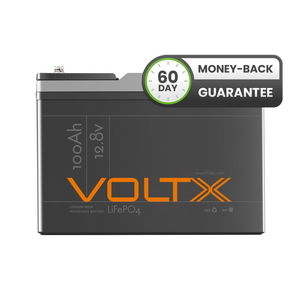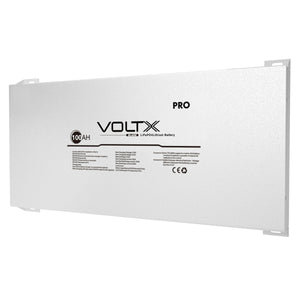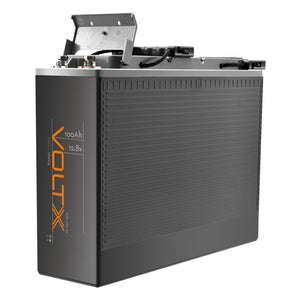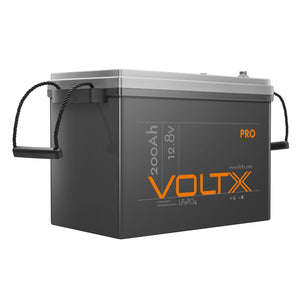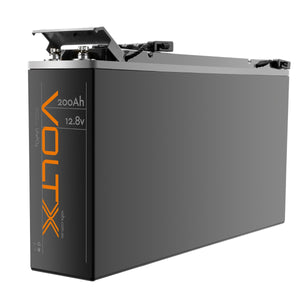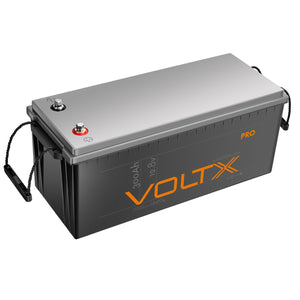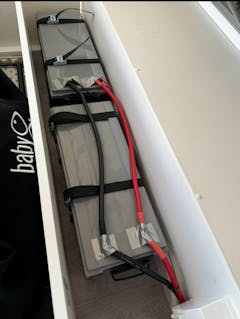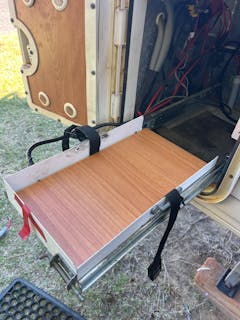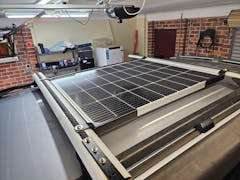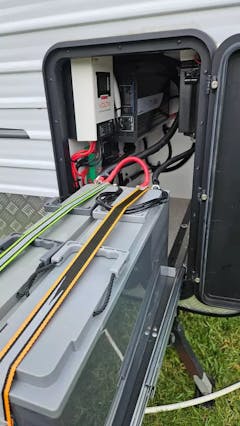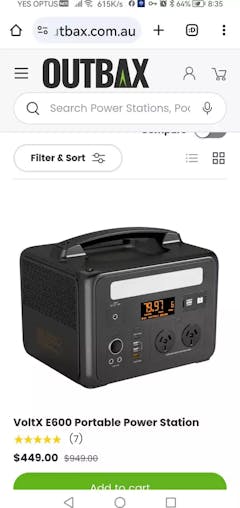Whether you're planning an outback adventure, setting up your caravan for a cross-country journey, or building an off grid power solution for your property, a reliable 12V rechargeable battery is the cornerstone of your power independence. The difference between a weekend ruined by power failure and one filled with uninterrupted enjoyment often comes down to choosing the right battery technology.
Modern advancements in lithium batteries, particularly in rechargeable battery pack designs, have revolutionised how Australians approach portable power, offering solutions that are lighter, more efficient, and incredibly long-lasting compared to traditional options. This comprehensive guide will walk you through everything from understanding the fundamental technology behind these powerhouses to selecting the perfect battery for your specific requirements, ensuring you make an informed decision that will energise your adventures for years to come.
Understanding Your Power Source: What is a 12V Rechargeable Battery?
At its core, a 12V battery is a portable energy storage device that delivers electrical power at approximately 12 volts, making it compatible with a wide range of devices, from camping fridges to LED lighting systems. Unlike their disposable counterparts, rechargeable 12V batteries can be restored to complete capacity hundreds or even thousands of times, representing both an economical and environmentally conscious choice for regular power users. Traditional lead-acid batteries, once the standard for deep-cycle applications, are increasingly being replaced by advanced lithium technologies that offer superior performance in virtually every measurable aspect.
The term "12 volt" refers to the nominal voltage output, although the actual voltage can range from approximately 10.5V when depleted to 14.4 V when fully charged, depending on the battery chemistry. A 12-volt rechargeable battery serves as the heart of numerous power systems, from solar installations to marine applications. Understanding how these rechargeable battery solutions work is the first step towards harnessing their full potential for your specific needs.
The LiFePO4 Advantage: Why Modern Batteries Reign Supreme
The emergence of LiFePO4 battery technology has fundamentally transformed what users can expect from their portable power solutions, offering a combination of safety, longevity, and performance that traditional batteries simply cannot match. Unlike other lithium chemistries, a 12V lithium LiFePO4 battery utilises lithium iron phosphate. This inherently stable compound won't combust even under extreme conditions, making it the safest choice for enclosed spaces like caravans and boats.
The integrated BMS (Battery Management System) acts as the battery's brain, constantly monitoring and regulating charging, discharging, and temperature to ensure optimal performance whilst preventing damage from overuse or environmental factors. These rechargeable lithium batteries typically deliver 2000-5000 charge cycles compared to just 300-500 for lead-acid alternatives, translating to a decade or more of reliable service under normal use conditions. As a deep cycle lithium battery, LiFePO4 excels at providing steady power over extended periods, maintaining a consistent voltage output even when discharged to 80% capacity, unlike lead-acid batteries, which suffer a significant voltage drop.
The long-lasting nature of these batteries, combined with their lightweight construction (typically 60% lighter than equivalent lead-acid), makes them ideal for mobile applications where every kilogram matters. Furthermore, their exceptional efficiency means more of your solar panel's output or shore power gets stored rather than lost as heat, making every lithium battery investment pay dividends in real-world performance.
Safety First: Understanding BMS Protection
The Battery Management System (BMS) is a high-quality 12V protection integrated into every quality 12V lithium battery. It serves as a sophisticated guardian, continuously monitoring cell voltages, current flow, and temperature to prevent conditions that could damage the battery or create safety hazards.
This electronic sentinel automatically disconnects the battery if it detects overcharging, over-discharging, excessive current draw, or temperatures outside safe operating ranges, ensuring your LiFePO4 investment remains protected even in challenging Australian conditions. Unlike simpler batteries that rely on user vigilance, a BMS-equipped battery provides peace of mind by making dangerous situations virtually impossible, allowing you to focus on enjoying your power rather than worrying about it.
Built to Last: Cycle Life and Durability
The exceptionally long cycle life of LiFePO4 batteries represents one of their most compelling advantages, with quality units delivering 2000-5000 complete charge cycles while maintaining 80% or more of their original capacity. In practical terms, this lifespan means that a deep-cycle battery used daily could easily provide a decade of reliable service, compared to two or three years from a traditional lead-acid battery under the same conditions. This durability isn't just about longevity; it's about consistent performance throughout the battery's life, maintaining steady power delivery and quick recharge capabilities that don't degrade significantly over time, making them the ultimate choice for serious power users.
Choosing Your Perfect Power Partner: Selecting the Right Battery
Selecting the ideal 12V rechargeable battery requires careful consideration of your specific power requirements, available space, and intended applications, with capacity (Ah) being the most critical factor to evaluate first. A 100Ah lithium battery provides ample power for weekend camping trips with moderate loads, such as LED lights and a small fridge. Meanwhile, larger setups that demand continuous power for multiple appliances might benefit from a 200Ah lithium battery or even a 300Ah lithium battery for extended off-grid living.
Form factor plays an equally important role, with innovative designs, such as the slim lithium battery and blade lithium battery, solving installation challenges in space-constrained environments, including under vehicle seats or in narrow boat compartments. Understanding your daily power consumption in amp-hours helps determine the right capacity. For instance, a 60-litre camping fridge drawing three amps per hour would consume 180Ah daily, suggesting a 200Ah battery for comfortable two-day autonomy with reserve capacity. When you're ready to buy 12V rechargeable battery solutions, consider not just your immediate needs but also the potential future expansion of your power system. Choosing a slightly larger capacity initially often proves more economical than upgrading later.
Capacity Counts: Understanding Amp Hours (Ah)
The amp-hour rating of a 12V 100Ah lithium battery indicates it can deliver 100 amps for one hour, or more realistically, five amps for 20 hours, making Ah capacity the key metric for determining how long your battery will power your devices. Standard capacities like 100Ah, 200Ah, and 300Ah suit different applications – think of 100Ah as perfect for weekend warriors, 200Ah for serious travellers, and 300Ah for those living off-grid or running power-hungry equipment. Understanding this relationship between capacity and runtime empowers you to choose a battery that matches your lifestyle without paying for unnecessary capacity or finding yourself short of power when it matters most.
Size and Shape Matter: Slimline and Compact Options
Modern slimline battery designs have revolutionised installation possibilities, with these space-saving marvels fitting into locations where traditional batteries simply won't go, from under-seat storage in dual-cab utes to slim compartments in yacht hulls. The lithium slimline battery format typically reduces depth by 40-50% compared to standard batteries whilst maintaining full capacity, solving countless installation headaches for vehicle and boat owners dealing with limited space. Even trim 12V rechargeable battery options now offer impressive power density, making them ideal for portable power stations, backup systems, or projects where weight and size constraints necessitate creative solutions without compromising performance.
Powering Aussie Adventures and Projects: Common Uses
From the red centre to coastal camps, a quality 12V battery for camping has become as essential as a swag for Australian adventurers, powering everything from fridges keeping drinks cold to CPAP machines ensuring restful sleep under the stars. The versatility of a lithium camping battery extends beyond recreational use, with a 12V rechargeable battery for solar panel systems enabling sustainable off-grid power for remote properties, construction sites, and emergency backup systems. Marine batteries appreciate how these batteries handle the demanding environment of boats, providing reliable starting power and house battery capabilities without the maintenance headaches of flooded lead-acid alternatives.
For the growing maker community and home automation enthusiasts, a 12V rechargeable battery pack for LED lights opens up possibilities for creative lighting projects, security systems, and IoT devices that operate independently of mains power. The modern solar battery application perhaps best demonstrates the technology's maturity, with LiFePO4 batteries accepting charge efficiently from panels whilst providing stable power through nights and cloudy periods, making sustainable living more accessible than ever before.
Maximising Your Investment: Care and Maintenance Tips
Understanding how to charge a 12V LiFePO4 battery correctly forms the foundation of proper battery care, as these batteries require a specific charging profile that differs from traditional lead-acid requirements – typically 14.4-14.6V for bulk charging, followed by a lower float voltage. To maintain a 12V rechargeable battery in peak condition, store it at a partial charge (around 50-70%) if not in use for extended periods.
Avoid exposing it to extreme temperatures above 60°C. Perform a complete discharge-recharge cycle every few months to keep the Battery Management System (BMS) calibrated. Regular visual inspections for damage, maintaining terminals clean and tight, and using appropriate gauge wiring for your current requirements will ensure your battery delivers its whole potential lifespan whilst maintaining safety and efficiency throughout years of faithful service.
Your Next Steps in Reliable Power
Modern 12V rechargeable battery lithium technology, particularly LiFePO4, represents a quantum leap in portable power solutions that transforms how Australians approach energy independence, whether for recreation, work, or emergency preparedness. The combination of exceptional safety, remarkable longevity, and superior performance makes lithium battery solutions increasingly compelling for anyone serious about reliable power. With the knowledge gained from this guide, you're now equipped to evaluate your power needs accurately and select a battery that will serve you faithfully through countless adventures and projects, ensuring you never find yourself powerless when it matters most.
Frequently Asked Questions
- What exactly is a 12V rechargeable battery?
- How long does a good quality 12V rechargeable battery typically last?
- Where is the best place to buy 12V rechargeable battery solutions in Australia?
- What are "Pro" series batteries at VoltX, and are they worth it?
- What is the best type of 12V Battery?
- Are 12-volt portable battery options good for on-the-go power?
- What are the main benefits of choosing a LiFePO4 battery over other types?
- What is a BMS, and why is it essential for my lithium battery?
- What capacity (Ah) 12V battery do I need for my camper trailer or caravan?
- Are there 12V rechargeable batteries suitable for tight spaces?
- Can I use a 12V rechargeable battery with my solar panels?
- What should I look for in a warranty for a 12V rechargeable battery?
- How do I safely charge my 12V LiFePO4 battery?
- What makes a 12V battery "deep cycle," and when do I need one?
